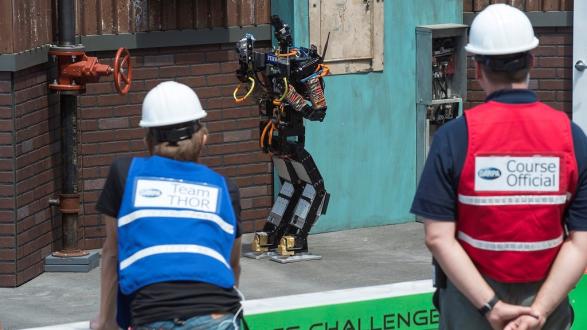The trade winds have shifted under the Trump administration.
Washington withdrew from the Trans-Pacific Partnership and is reexamining the North America Free Trade Agreement. During a recent visit to Seoul, Vice President Michael Pence announced that the Trump administration would review and reform the Korea-U.S. Free Trade Agreement.
The current administration is taking an approach to trade based on bilateral negotiations rather than free trade and multilateral agreements. As a consequence, tariffs are back in mode and foreign firms are taking notice. Fearing retribution under the Trump administration, LG announced that it would build a washing machine factory that would create hundreds of jobs in Tennessee, and Samsung may build another home appliance factory in the United States.
Washington has maintained a trade deficit for decades and it is no secret that there are winners and losers under free trade. In the meantime, U.S. consumers have enjoyed the low prices and variety of goods that come with free trade. But why is free trade under crisis now?
While the current government is focused on striking new trade deals, it in fact should be more concerned about how new technologies affect labor in a more fundamental way.
There are two main reasons.
First is the perception that imports from developing countries like China and Mexico are destroying U.S. jobs. China’s integration into world trade has created a trade shock substantially greater than what the world has seen before. Indeed, economists have found that regions more affected by Chinese imports see a larger decline in manufacturing jobs and wages.
Second is the fact that workers who lose their jobs are not moving into sectors in which the United States has comparative advantage, such as information technology. A high school graduate who had been working on the production line for years will have difficulty finding a coding job at a tech company.
It may be true to some degree that international trade triggered the misfortunes of American manufacturing workers. But in order to respond with the right set of policies, we need to understand (1) whether there are other forces that are driving the decline in manufacturing jobs, and (2) how big the impacts of the different forces are. In particular, we need to know whether import competition is the primary driver of job destruction in the United States, or whether technological change is to blame.
Economists and technologists have argued that the recent wave of technological change from robotics, big data, and artificial intelligence could replace human labor in unprecedented ways. A recent study by economists at MIT and Boston University finds that one robot replaces about 6 workers. In my own research, I find that automation is significantly more important in explaining employment decline than import competition.
In other words, what we should be worrying about is not free trade destroying jobs, but the new wave of technology replacing humans in the workplace.
There currently is no policy, nor any substantive discussion, on how to help workers displaced by technological change.
Though there are government policies that train and provide benefits to workers displaced from foreign competition, there currently is no policy, nor any substantive discussion, on how to help workers displaced by technological change.
While the current government is focused on striking new trade deals, it in fact should be more concerned about how new technologies affect labor in a more fundamental way. Carrier decided not to move its factory to Mexico, and in return received a handsome subsidy from the government. But soon after, Carrier revealed that it intends to fully automate the plant, displacing workers in the near future.
Korean firms with plants in the United States may eventually find it economically rational to replace workers with robots, too. But a Korean firm displacing workers in the United States would generate a stronger backlash than a U.S. company displacing U.S. workers. That means that the decision by foreign companies to invest in the United States could actually backfire because of automation in the near future.
How should Korean companies react? Perhaps rather than building a home appliance factory in return for uninterrupted access to the U.S. market, Korean technology firms like Samsung and LG would generate more meaningful benefits by addressing the challenges of automation themselves, and training U.S. workers in the skills needed in the future workplace. Someone needs to do it.
____________________
Yong Suk Lee is the SK Center Fellow at the Freeman Spogli Institute for International Studies at Stanford University, and Deputy Director of the Korea Program at Stanford University.
The views and opinions expressed here are those of the author and do not necessarily reflect the official policy or position of the Pacific Council.



